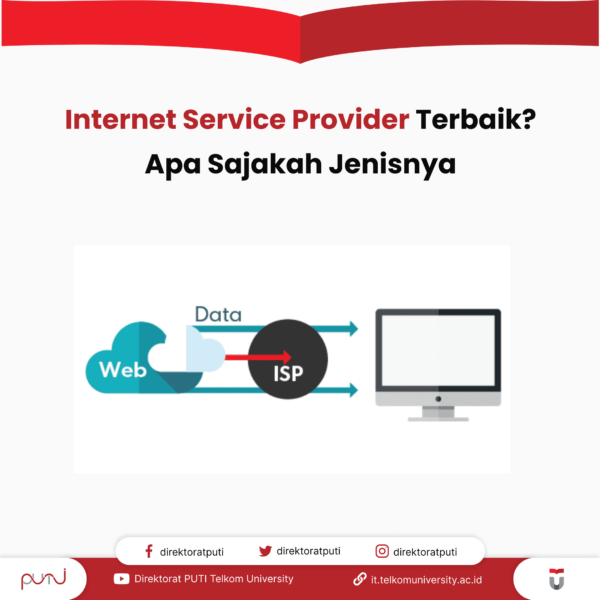Internet Service Providers (ISPs) play a crucial role in connecting users to the vast world of the internet. As the gatekeepers of online access, ISPs facilitate the transfer of data between users and the internet, enabling communication, information exchange, and access to various online services.
Exploring Internet Service Providers (ISP)
ISPs are entities that provide individuals and organizations with access to the internet. They operate a range of technologies, including fiber optics, cable, DSL, satellite, and wireless connections, to deliver internet services to their subscribers. ISPs typically offer a variety of plans with different speeds, bandwidth limits, and pricing options to cater to the diverse needs of their customers.
Key Features of Internet Service Providers (ISP)
- Network Infrastructure: ISPs maintain extensive network infrastructures comprising routers, switches, servers, and other equipment to manage the flow of data across the internet.
- Connectivity Options: ISPs offer various connectivity options, such as dial-up, broadband, and mobile data, to ensure widespread accessibility to the internet.
- Customer Support: ISPs provide customer support services to address technical issues, billing inquiries, and other concerns raised by their subscribers.
- Security Measures: ISPs implement security measures, such as firewalls, encryption, and malware detection, to safeguard their networks and protect users’ data from cyber threats.
Types of Internet Service Providers (ISP)
| Type | Description |
|---|---|
| Dial-Up ISPs | Utilize traditional telephone lines to establish internet connections, albeit at slower speeds. |
| Broadband ISPs | Offer high-speed internet access through technologies like DSL, cable, fiber optics, or satellite. |
| Wireless ISPs (WISPs) | Deliver internet services wirelessly using technologies such as Wi-Fi, LTE, and 5G. |
| Mobile Network Operators (MNOs) | Provide internet access through cellular networks to mobile devices like smartphones and tablets. |
Ways to Use Internet Service Providers (ISP)
- Accessing Websites and Online Services: ISPs enable users to browse websites, stream videos, send emails, and utilize various online services.
- Communication: ISPs facilitate communication through email, instant messaging, VoIP, and video conferencing applications.
- Entertainment: Users can enjoy online entertainment, including streaming movies, music, and gaming, thanks to ISPs.
- E-commerce: ISPs support online shopping and financial transactions by providing secure internet connections.
- Remote Work and Education: With reliable internet access from ISPs, individuals can work remotely and participate in online learning programs.
Challenges and Solutions with Internet Service Providers (ISP)
- Bandwidth Limitations: ISPs may impose bandwidth caps or throttle internet speeds, limiting users’ online activities. Users can upgrade to higher-tier plans or switch to ISPs offering unlimited data options.
- Network Congestion: During peak hours, network congestion may occur, leading to slower internet speeds. ISPs can alleviate this issue by upgrading network infrastructure and optimizing traffic management techniques.
- Security Threats: Users’ data privacy and security may be compromised by cyber attacks and malicious activities. Employing robust security measures, such as VPNs, antivirus software, and encryption protocols, can mitigate these risks.
Characteristics and Comparisons
| Characteristic | ISP (Internet Service Provider) | VPN (Virtual Private Network) |
|---|---|---|
| Purpose | Provides internet access to users. | Secures and anonymizes internet connections. |
| Encryption | Typically offers basic encryption for data transmission. | Utilizes advanced encryption protocols to secure data. |
| Anonymity | Does not inherently provide anonymity for users. | Ensures anonymity by masking users’ IP addresses and encrypting data. |
| Network Scope | Offers wide-reaching network coverage. | Establishes secure connections over existing internet infrastructure. |
Future Perspectives and Technologies
The future of ISPs is intertwined with emerging technologies and evolving consumer demands. Key trends shaping the future of ISPs include:
- Expansion of 5G Networks: 5G technology promises faster internet speeds and lower latency, revolutionizing the way users access online content and services.
- Internet of Things (IoT) Integration: ISPs will play a vital role in supporting the proliferation of IoT devices by providing reliable connectivity and managing data traffic.
- Enhanced Security Measures: ISPs will continue to invest in advanced security solutions to combat evolving cyber threats and protect users’ privacy.
- Fiber Optic Expansion: The deployment of fiber optic infrastructure will enable ISPs to deliver ultra-fast internet speeds and support bandwidth-intensive applications.
VPN and its Relationship with ISP
VPNs complement ISPs by enhancing privacy, security, and online freedom for users. By encrypting internet traffic and masking IP addresses, VPNs prevent ISPs from monitoring users’ online activities and restrict access to geo-blocked content. Additionally, VPNs mitigate the risks associated with using public Wi-Fi networks by creating secure tunnels for data transmission.
Resources for Further Information
- Federal Communications Commission (FCC): https://www.fcc.gov/
- Internet Society (ISOC): https://www.internetsociety.org/
- OpenVPN: https://openvpn.net/
- Cisco Networking Academy: https://www.netacad.com/


